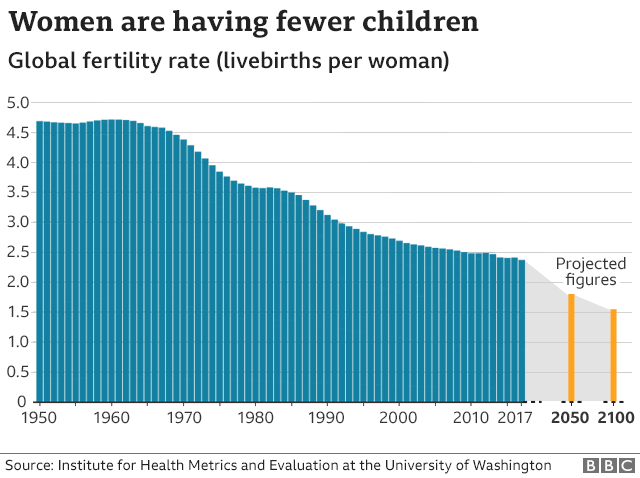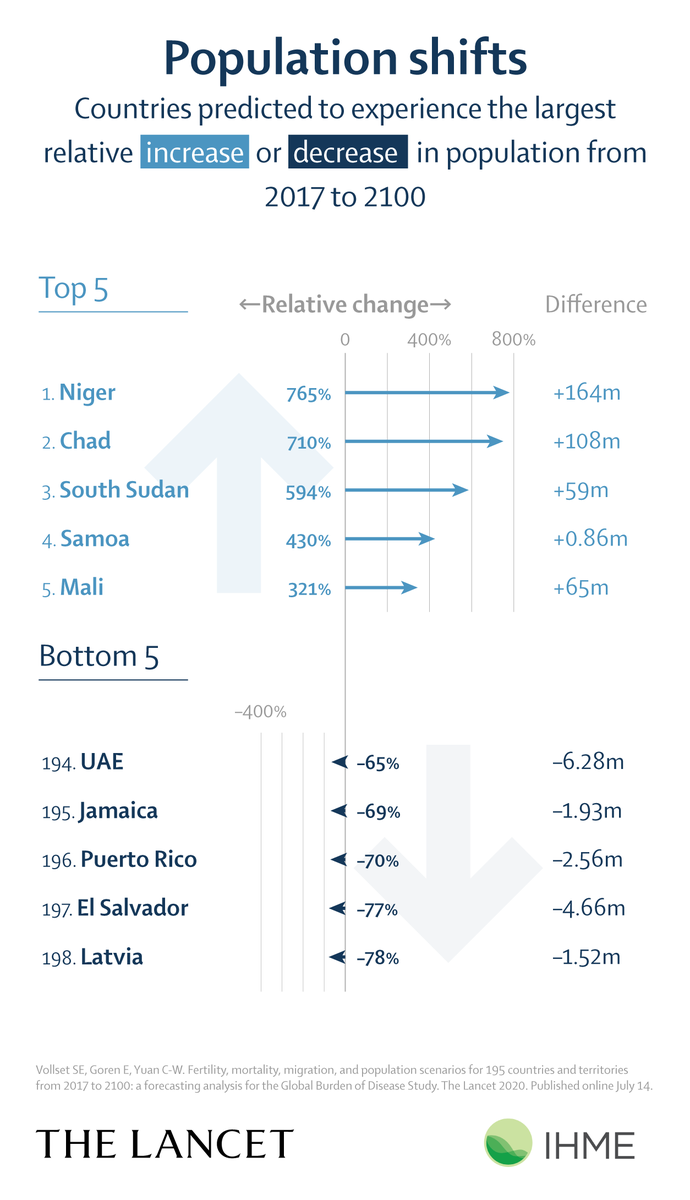Global Fertility Decline Will See Population In Over 20 Countries Halved By 2100: Study
Tyler Durden
Thu, 07/16/2020 – 02:45
A new study from by the Institute for Health Metrics and Evaluation (IHME) at the University of Washington, and reported in AFP, finds that the earth is projected to have two billion fewer people by the next century than current United Nations projections forecast for “normal” global development.
It forecasts a population peak by the 2060’s at an estimated 9.7 billion people, after which a steep decline will ensue down to 8.8 billion by 2100.
Currently, the global fertility rate stands at 2.4, but based on the study’s numbers, it’s expected to be at a “jaw-dropping” 1.7 by end of the century, as one the main authors Professor Christopher Murray described.
The study found alarmingly that 23 countries are expected to see their total population cut in at least half by the year 2100, among them include Italy, Japan, Poland, Portugal, South Korea, Spain and Thailand.
“It’s extraordinary, we’ll have to reorganize societies.” https://t.co/pDdi9nTVwu
— Futurism (@futurism) July 15, 2020
Some of the examples listed in the report are as follows:
Japan: from around 128 million people in 2017 to 60 million in 2100
Thailand: 71 million to 35 million
Spain: 46 million to 23 million
Italy: 61 million to 31 million
Portugal: 11 million to 5 million
South Korea: 53 million to 27 million
Astoundingly – or perhaps entirely to be expected – mainstream media is hailing it as a “success story” given that it’s not about sperm count, but more and more women simply choosing to not have children.
Chart illustrating the dramatic shift over the next hundred years via The Lancet/IHME
For example BBC wrote, “It has nothing to do with sperm counts or the usual things that come to mind when discussing fertility. Instead it is being driven by more women in education and work, as well as greater access to contraception, leading to women choosing to have fewer children.”
“In many ways, falling fertility rates are a success story,” BBC concluded, echoing some of the authors of the original study.
via ZeroHedge News https://ift.tt/2CHJUrH Tyler Durden

